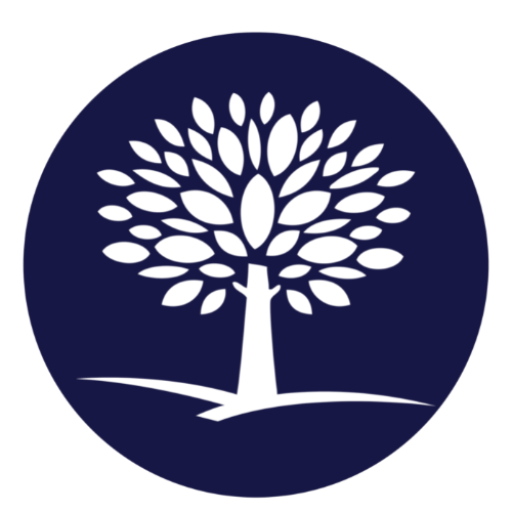Signs of Oxycodone Abuse and Addiction

By The Recovery Village Columbus
Last Updated: January 17, 2023
The symptoms of oxycodone abuse can be dangerous and lead to many uncomfortable physical, behavioral and social side effects.
Understanding the signs, symptoms and side effects of oxycodone addiction is critical. Many people who misuse oxycodone may try to hide their addiction from their loved ones and will take more steps to disguise it than those who openly share their addiction. Nevertheless, individuals can learn to recognize some tell-tale signs of oxycodone addiction.
The opioid epidemic in the U.S. has many consequences — some falling directly on the person abusing opioids, and others indirectly affecting the person’s community. One of the main drivers of the opioid epidemic is oxycodone, which is the active ingredient in brand-name prescriptions such as OxyContin, Percocet, Roxicodone and Xtampza ER.
Oxycodone addiction can happen to anyone though it may be hard to recognize in friends, acquaintances or loved ones until a tolerance or dependence is established. Everyone struggling with oxycodone addiction has a unique story.
Understanding Oxycodone Addiction
Prescription opioids like oxycodone are known to be dangerous and addictive. For this reason, oxycodone is a Schedule II controlled substance with a high risk of abuse, addiction and dependence.
Upon entering the body, opioids bind to mu opioid receptors in the central nervous system, activating them and relieving pain. However, opioids also trigger the brain’s reward circuit, releasing feel-good neurotransmitters associated with calmness and euphoria. Over time, people may develop a tolerance to oxycodone as they need more of the drug to get the same euphoric feeling as when they started taking it.
People are introduced to oxycodone in many ways, including by prescription after an injury or surgery. Because oxycodone prescriptions are often meant to be short-term, a person may then buy oxycodone on the street when the prescription runs out. In some cases, they may even turn to other drugs like heroin: 80% of people who use heroin started with prescription opioids.
Signs and Symptoms of Oxycodone Addiction
An oxycodone addiction rarely goes unnoticed for long. Friends, family and colleagues often begin to notice changes in a person’s behavior while taking the drug. Signs of oxycodone misuse include:
- Taking more oxycodone or for a longer time than intended
- Unsuccessfully trying to cut back or quit oxycodone
- Spending much time focused on obtaining, using or recovering from oxycodone
- Cravings for oxycodone
- Inability to meet obligations at work, school or home due to oxycodone
- Interpersonal problems due to oxycodone
- Spending less time on other activities due to oxycodone
- Taking oxycodone even when it is physically dangerous
- Taking oxycodone even though you know that the drug is hurting you
- Needing increasing oxycodone doses to achieve the same effects as before
- Withdrawal symptoms when you stop or miss a dose of oxycodone
The Effects of Oxycodone Abuse
There are many different effects of oxycodone misuse. Some effects are physical, while others are behavioral or social. In addition, long-term side effects can become a risk with chronic use. Oxycodone addiction symptoms may differ depending on the person but include:
Physical Side Effects
- Sleepiness or drowsiness
- Constipation
- Headache
- Nausea
- Skin flushing
- Dry mouth
- Slowed breathing
Behavioral Side Effects
- Delusions
- Confusion
- Feelings of euphoria or calmness
- Rapidly shifting moods
- Strange dreams
- Depression
- Decreased libido
- Difficulty speaking
- Memory problems
Social Side Effects
- Legal problems
- Broken relationships with family and friends
- Unemployment
- Homelessness
Long-term Side Effects
- Addiction
- Chronic constipation
- Sleep-disordered breathing
- Cardiovascular diseases
- Fractures
- Falls
- Increased sensitivity to pain
- Sexual problems, including low libido and infertility
- Immunosuppression
Symptoms of Oxycodone Withdrawal
When you take oxycodone regularly, your body quickly acclimates to the drug’s presence. If you suddenly stop the drug, your body struggles to readjust to being oxycodone-free. The symptoms you experience as your body adjusts are withdrawal symptoms and include:
- Muscle aches
- Insomnia
- Increased tear production
- Sweating
- Runny nose
- Yawning
- Enlarged pupils
- Abdominal cramps
- Goosebumps
- Nausea or vomiting
- Agitation
- Anxiety
- Diarrhea
Oxycodone Overdose
One of the biggest dangers of oxycodone addiction is the potential for overdose. Taking too much oxycodone can be deadly, especially if combined with other substances like benzodiazepine drugs. Symptoms of an oxycodone overdose include:
- Pale, clammy skin
- Limp muscles
- Bluish lips or fingernails
- Vomiting
- Gurgling noises
- Unresponsiveness
- Slowed or stopped breathing or heartbeat
An oxycodone overdose is a medical emergency and can be deadly. If you suspect someone is overdosing, administer naloxone (Narcan) if available and call 911.
Oxycodone Abuse Statistics
Oxycodone is one of the most commonly prescribed opioids in the U.S. To better understand the gravity of the opioid epidemic, it is best to acknowledge statistics on oxycodone misuse:
- Of those with an oxycodone prescription, 12.8% misused it in 2020
- Of people who misused prescription drugs in 2020, 30.4% of them misused oxycodone
- Oxycodone is the 54th most commonly prescribed medication in the U.S.
- More than 4 million Americans were prescribed oxycodone in 2020
- In 2020, 415 Ohioans died from an overdose of prescription opioids like oxycodone
These statistics show that oxycodone abuse remains widespread and dangerous.
Sources
- Substance Abuse and Mental Health Services Administration. “Key Substance Use and Mental Health Indicators in the United States: Results from the 2021 National Survey on Drug Use and Health.” January 3, 2023. Accessed March 19, 2023.
- ClinCalc. “Oxycodone – Drug Usage Statistics.” Accessed March 19, 2023.
- National Institute on Drug Abuse. “Prescription Opioids DrugFacts.” June 2021. Accessed March 19, 2023.
- PsychDB. “Opioid Use Disorder.” May 3, 2021. Accessed March 19, 2023.
- U.S. Department of Justice, Drug Enforcement Administration. “Drugs of Abuse.” December 2022. Accessed March 19, 2023.
- National Library of Medicine. “Oxycodone.” February 15, 2021. Accessed March 19, 2023.
- Baldini, AnGee; Von Korff, Michael; Lin, Elizabeth H. B. “A Review of Potential Adverse Effects of Long-Term Opioid Therapy: A Practitioner’s Guide.” The Primary Care Companion for CNS Disorders, 2012. Accessed March 19, 2023.
- American Society of Addiction Medicine. “National Practice Guideline for the Treatment of Opioid Use Disorder.” December 18, 2019. Accessed March 19, 2023.
- National Library of Medicine. “Opioid Overdose.” February 27, 2019. Accessed March 19, 2023.

Questions?
Our Recovery Advocates are ready to answer your questions about addiction treatment and help you start your recovery.


